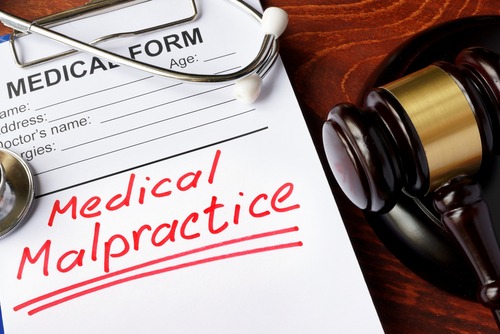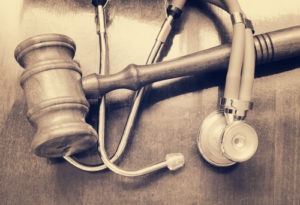 A vegetative state, a condition in which someone is awake but is unaware, can result from medical malpractice in several ways.
A vegetative state, a condition in which someone is awake but is unaware, can result from medical malpractice in several ways.
A vegetative state occurs when a person is awake but does not show any signs of awareness. In contrast, a coma is when a person is both unconscious and unaware. A person in a vegetative state gives no coherent response to anything going on around them or any changes in their environment. They may or may not react instinctively to certain stimuli, such as withdrawing their hand or arm in response to having an IV inserted.
Total paralysis is sometimes a feature of a vegetative state, but other times it is not. A person who is in a vegetative state but not paralyzed may blink their eyes, moan, grunt, cry, or gnash their teeth. However, they have no conscious awareness of their surroundings, no real cognitive function, and no ability to form rational thoughts.
Reasons a Person Goes Into a Vegetative State
A person may go into a vegetative state for a number of reasons. Most often, the condition results from severe brain damage. This damage may arise due to a traumatic brain injury or a medical event or condition that causes a sustained lack of oxygen to the brain.
A traumatic injury can cause swelling in the brain, leading to damage and lack of function. In a worst-case scenario, this can culminate in a vegetative state. When the brain is deprived of oxygen, cells begin to die off, and when they do, they do not regenerate the way damaged cells do in other parts of the body.
Medical Malpractice Can Lead to a Vegetative State
Some causes of vegetative states are unpredictable and beyond anyone’s control. Others are preventable and result from the negligence of one or more parties — often a health care professional. If medical malpractice caused someone you love to enter a vegetative state, you may have grounds for a malpractice lawsuit.
Living in a Vegetative State
A person in a vegetative state cannot live or function on their own and requires 24-hour skilled care. Not only does the patient need help with all daily living activities (e.g., eating, bathing, dressing), but they also need constant monitoring of their vital signs and other health markers. If an emergency should arise, they have no way to tell anyone or summon help.
Many doctors and researchers believe that the only true type of vegetative state is a permanent one. That is, if a person demonstrates behaviors indicative of a vegetative state but later recovers their awareness and cognitive function, they were not actually in a vegetative state to begin with.
Call 888-526-8947 Today for a Free Medical Malpractice Case Evaluation With a Member of the Newsome | Melton Team
The medical malpractice lawyers at Newsome | Melton want to help you recover damages if your loved one entered a vegetative state because of a health care provider’s negligence. We will go after them and hold them accountable. For a free consultation with a member of our dedicated staff, call 888-526-8947 today.
Vegetative State - Frequently Asked Questions

If your doctor misdiagnosed your medical condition for five years, you might have a right to collect damages for the harm you suffered. What to Expect in the Lawsuit Physicians pay for medical malpractice insurance to protect themselves when they get sued. These professional liability insurers have teams of lawyers who defend the doctors aggressively.
Read More
Of the approximately 300,000 American women who have breast augmentation surgery each year, some 240,000 choose the procedure for cosmetic reasons. For the remainder, breast augmentation is a reconstructive surgery following mastectomy or accidental breast scarring. The number of annual breast augmentations makes the operation the most common cosmetic surgery performed in the United Sates,
Read MoreVegetative State - News Articles

The Law of Medical Malpractice in Maine: A Survey of Basic Considerations Maine medical malpractice law is among the most complex legal practice areas. The statutes, case law, and regulations governing medical malpractice law in Maine are highly technical. For instance, there are very strict and complicated filing deadlines that must be followed, or the injured
Read More
David Robinson was just 35-years-old when he found blood in his stool. He decided to visit a clinic, staffed by the American Health Network, a private physician group practice that operates in more than 70 offices in Indiana and Ohio. According to a medical malpractice lawsuit, filed on behalf of Robinson, because of the physician
Read More